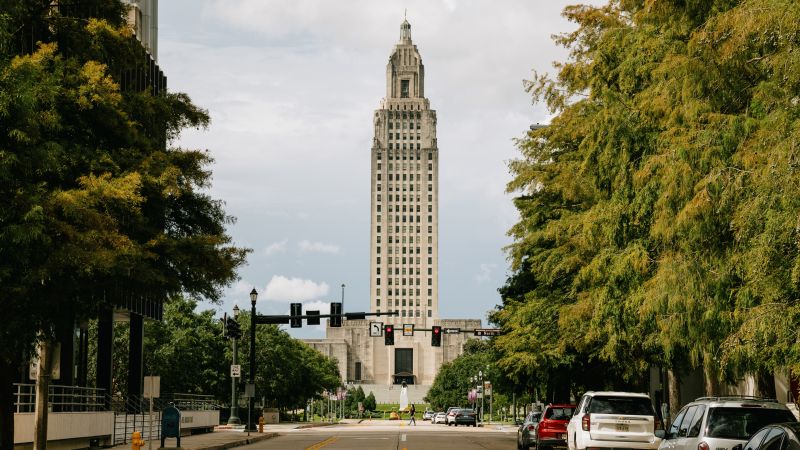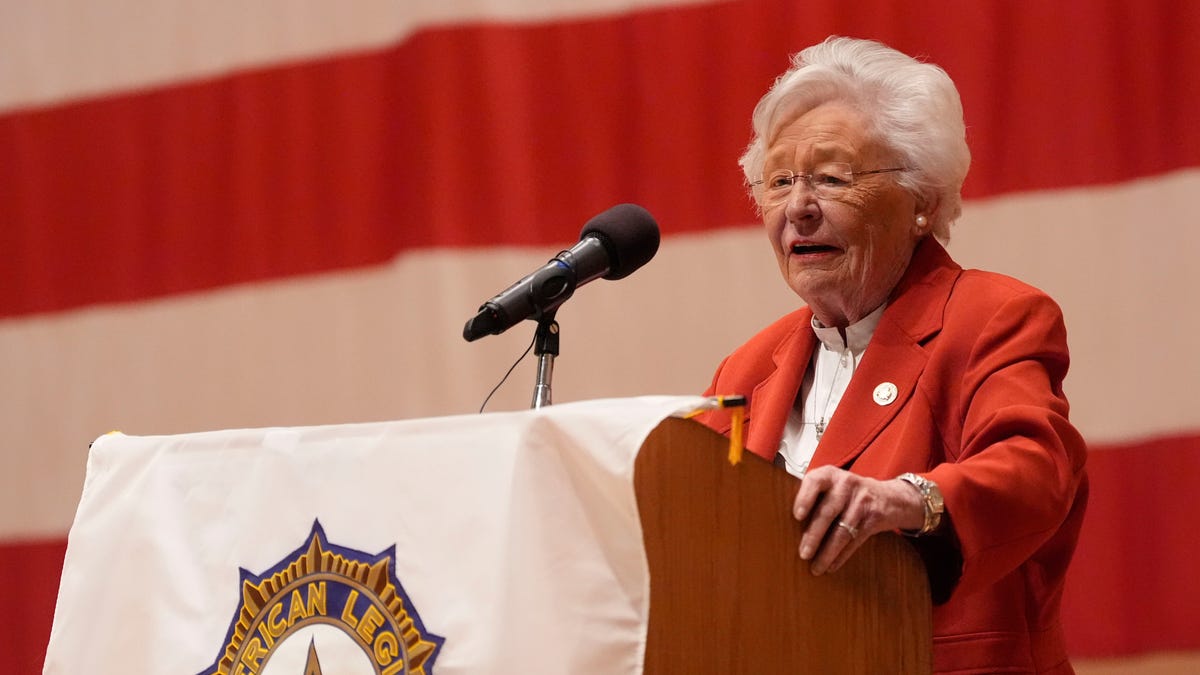CNN
—
Louisiana’s legislature utilized its Republican supermajority Tuesday to enact a ban on gender-affirming care for most minors, overriding its Democratic governor who had vetoed the bill.
The law will take effect January 1, 2024.
Gov. John Bel Edwards, who vetoed House Bill 648 last month, said in a statement that he expected the courts to overturn the legislation, describing it as “a bill that needlessly harms a very small population of vulnerable children, their families, and their health care professionals.”
The state House and Senate voted 76-23 and 28-11, succeeding in blocking Edwards’ move with the two-thirds majority in each chamber needed to overpower the governor.
The law will bar those under 18 in Louisiana from receiving gender-affirming surgeries, puberty blocking medications and hormone treatments, and punishes health care professionals that provide them with the revocation of their license for a minimum of two years.
Doctors who began providing such drug or hormone therapy to a minor before January 1, 2024, are allowed to continue providing care through December 1, 2024, if they determine that “immediately terminating the minor’s use of the drug or hormone would cause harm to the minor.”
Gender-affirming care spans a range of evidence-based treatments and approaches that benefit transgender and nonbinary people. The types of care vary by the age and goals of the recipient, and are considered the standard of care by many mainstream medical associations.
Though the care is highly individualized, some children and parents may decide to use reversible puberty suppression therapy. This part of the process may also include hormone therapy that can lead to gender-affirming physical change. Surgical procedures prohibited under the measure, however, are not typically done on children and many health care providers do not offer them to minors.
No such surgeries were performed on Louisiana minors enrolled in Medicaid from 2017 to 2021, according to a report from the state Department of Health, which found that few minors, between 21 and 57 each year, received chemical treatment during the same time period.
Proponents of the legislation have expressed concern over long-term outcomes of the treatments. But major medical associations say that gender-affirming care is clinically appropriate for children and adults with gender dysphoria – a psychological distress that may result when a person’s gender identity and sex assigned at birth do not align, according to the American Psychiatric Association.
Republicans gained strong enough majorities in the state’s House and Senate to override vetoes from the governor after Louisiana’s longest-serving legislator switched in March from the Democratic Party to the Republican Party.
But not all Republicans have supported HB 648. For the third time Tuesday, GOP state Sen. Fred Mills cast his vote in opposition to the bill – the only Republican in the state Senate to do so.
“I’ve always in my heart of hearts, believed that a decision should be made by a patient and a physician,” he said last month, when he voted against the bill in committee.
The American Civil Liberties Union of Louisiana condemned the legislature’s override, saying in a statement that lawmakers who voted to override have chosen to sacrifice the health and safety of Louisiana’s transgender children and undermine the rights of their parents.
“This is extreme government overreach and a direct threat to the civil liberties and constitutional rights of all Louisianans. We condemn today’s override of HB648, and we will never stop fighting to protect the rights of transgender youth and their families,” the statement added.
Laws restricting the procedures for minors have spread across the country, with 17 states besides Louisiana so far this year placing their own laws on the books – though the legality of such bans is under intense scrutiny as federal judges last month temporary blocked laws in Tennessee, Indiana and Kentucky, while a 2021 law in Arkansas was struck down outright and deemed unconstitutional.
Democratic governors have pushed back on Republican-led efforts to restrict the treatments with varying degrees of success – Kansas Gov. Laura Kelly successfully blocked a ban while state lawmakers overrode Kentucky Gov. Andy Beshear’s veto.
The Louisiana legislature most recently used its veto override powers in 2022 to pass a law Edwards had opposed that created a map retaining Republicans’ advantage in five of the state’s six congressional districts. The map kept the Second District – which stretches from Baton Rouge to New Orleans – the only majority Black district, and the only district to favor Democrats. A federal judge blocked that map and instructed the legislature to create a new one with a second majority-Black district – a ruling upheld by the US Supreme Court last month.
“The first time I was overridden, on the Congressional district map, I said the bill was illegal and I expected the courts would throw it out. The courts have done so,” Edwards said in his statement Tuesday. “Today, I was overridden for the second time… I expect the courts to throw out this unconstitutional bill, as well.”
This story has been updated with additional information.
































